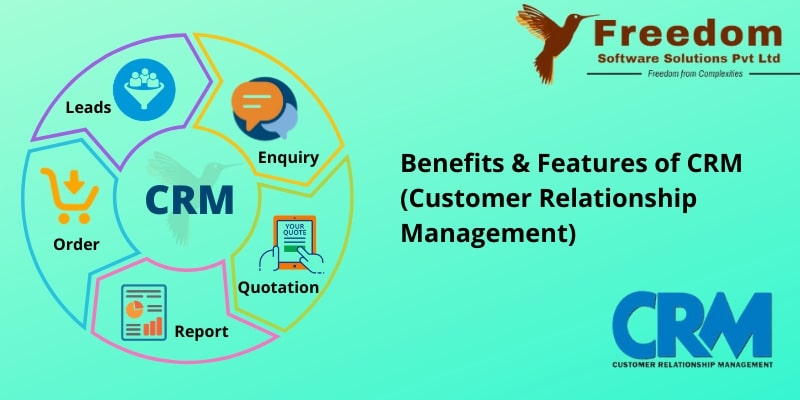Benefits of Customer Relationship Management
In today’s highly competitive business landscape, customer relationship management (CRM) has become an essential tool for organizations to effectively manage their interactions with customers. CRM systems offer a wide range of benefits that can significantly enhance a company’s ability to attract, retain, and satisfy customers. In this article, we will explore the various advantages of implementing a CRM system and how it can help businesses thrive in the digital age.
Improved Customer Satisfaction
A CRM system enables businesses to gain a deeper understanding of their customers by consolidating all customer-related data into a single platform. This comprehensive view of customer information allows companies to personalize their interactions, anticipate customer needs, and provide timely and relevant solutions. By delivering exceptional customer experiences, businesses can enhance customer satisfaction, build long-term loyalty, and increase customer retention rates.
Enhanced Sales and Marketing Efforts
One of the primary benefits of CRM is its ability to streamline sales and marketing processes. By analyzing customer data, businesses can identify patterns, preferences, and buying behaviors, which can be used to tailor marketing campaigns and sales strategies. CRM systems also provide sales teams with real-time access to customer information, enabling them to identify cross-selling and upselling opportunities, resulting in increased sales revenue and improved customer lifetime value.
Improved Communication and Collaboration
A CRM system acts as a centralized hub for all customer-related information, fostering better communication and collaboration within an organization. Sales, marketing, and customer service teams can easily access and share customer data, ensuring a consistent and seamless customer experience across all touchpoints. This improved internal communication leads to better coordination, increased efficiency, and ultimately, improved customer satisfaction.
Enhanced Customer Retention
CRM systems help businesses proactively manage customer relationships by providing valuable insights into customer behavior and preferences. By identifying at-risk customers and implementing targeted retention strategies, companies can minimize customer churn and maximize customer lifetime value. CRM systems also enable businesses to track customer interactions, resolve issues promptly, and provide personalized support, further strengthening customer loyalty and advocacy.
Improved Decision Making
With a CRM system in place, businesses have access to a wealth of data and analytics that can drive informed decision-making. By analyzing customer data, businesses can identify trends, market opportunities, and customer segments that are most profitable. This data-driven approach allows companies to make strategic decisions, allocate resources effectively, and optimize business processes, resulting in improved overall performance and profitability.

Customer relationship management is a powerful tool that can revolutionize the way businesses interact with their customers. By implementing a CRM system, organizations can enhance customer satisfaction, improve sales and marketing efforts, foster better communication and collaboration, boost customer retention, and make informed decisions. In today’s digital age, where customer expectations are higher than ever, a robust CRM system is essential for businesses looking to stay ahead of the competition and build long-lasting customer relationships.
Frequently Asked Questions
Q1: What is Customer Relationship Management (CRM)?
A1: Customer Relationship Management (CRM) is a strategy that helps businesses manage their interactions and relationships with customers, aiming to improve customer satisfaction and loyalty.
Q2: What are the key benefits of implementing CRM?
A2: Implementing CRM can bring several benefits, such as:
Improved customer satisfaction
Enhanced customer retention
Increased sales and revenue
Streamlined marketing and sales processes
Improved communication and collaboration
Better customer insights and data analysis
Q3: How can CRM improve customer satisfaction?
A3: CRM helps businesses understand their customers better, enabling personalized interactions, timely responses to inquiries, and effective issue resolution, all of which contribute to higher customer satisfaction levels.
Q4: How does CRM contribute to customer retention?
A4: By maintaining a comprehensive customer database and tracking customer interactions, CRM allows businesses to identify and address customer needs proactively, increasing the chances of retaining customers and building long-term relationships.
Q5: Can CRM help increase sales and revenue?
A5: Yes, CRM can provide sales teams with valuable customer information, enabling them to identify upselling and cross-selling opportunities, target the right customers, and improve sales effectiveness, ultimately leading to increased sales and revenue.
Q6: How does CRM streamline marketing and sales processes?
A6: CRM systems automate various marketing and sales tasks, such as lead management, email marketing, and sales pipeline management. This automation improves efficiency, eliminates manual work, and ensures a consistent and coordinated approach across teams.
Q7: What role does CRM play in communication and collaboration?
A7: CRM serves as a centralized platform for teams to access and share customer data, enabling better communication and collaboration between departments. This leads to improved coordination, faster response times, and a more seamless customer experience.
Q8: How can CRM provide better customer insights and data analysis?
A8: CRM systems capture and analyze customer data, allowing businesses to gain valuable insights into customer behavior, preferences, and trends. These insights can be used to make data-driven decisions, personalize marketing efforts, and improve overall business strategies.
Q9: Are there any challenges in implementing CRM?
A9: While CRM offers numerous benefits, challenges in implementation can include resistance to change, data quality issues, integration complexities, and the need for ongoing training and support to ensure successful adoption and usage.
Q10: How can businesses measure the success of their CRM implementation?
A10: Businesses can measure CRM success by tracking metrics such as customer satisfaction scores, customer retention rates, sales growth, lead conversion rates, and return on investment (ROI) in CRM implementation.




